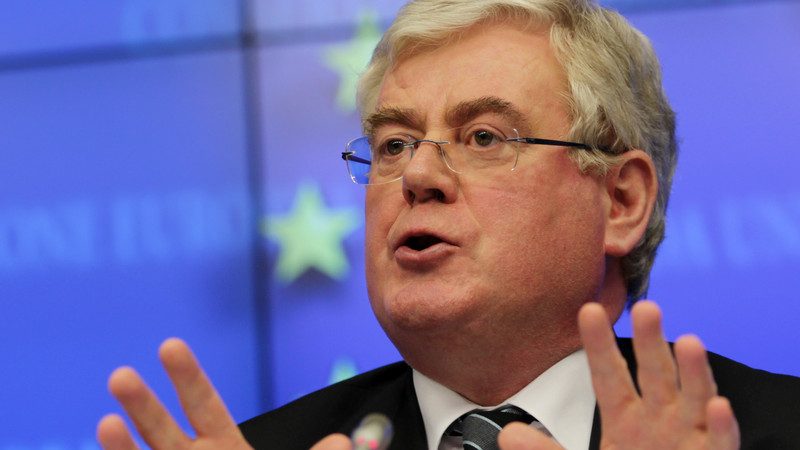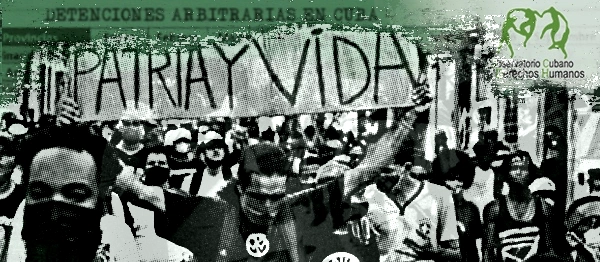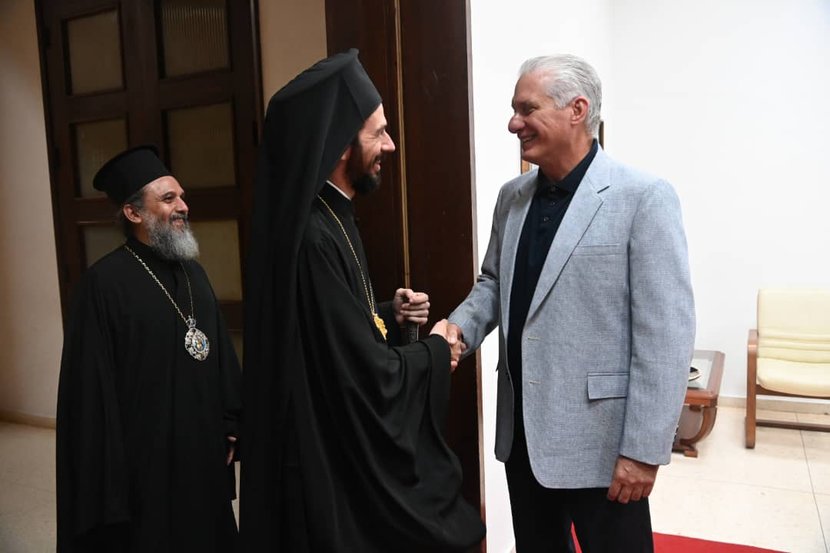El organismo solicita, de modo formal, «la aplicación del nuevo régimen sancionatorio de la Unión Europea para aquellas personas naturales o instituciones estatales involucradas» en las graves violaciones de derechos humanos en Cuba.
El Observatorio Cubano de Derechos Humanos (OCDH) denunció este miércoles ante Eamon Gilmore, representante de la Unión Europea (UE) para los derechos humanos, las graves violaciones ejecutadas por el gobierno de Cuba desde el pasado 11 de julio contra la población civil.
El documento recoge que las protestas masivas ocurridas en todo el país fueron respondidas con «uso excesivo de la fuerza, violaciones al derecho a la vida e integridad física, a la libertad de expresión, reunión, asociación, manifestación y un cuadro sistémico de persecución con detenciones arbitrarias, y juicios sumarios con vulneración de reglas básicas del debido proceso».
«La orden de combate del presidente Díaz Canel ocasionó un cuadro de violencia marcado por la confrontación en los espacios públicos entre acólitos al régimen político y manifestantes (…) El uso desmedido de la fuerza pública incluyó el empleo de armas de fuego contra la población civil, con un saldo de varios heridos por balas y, hasta la fecha, un único fallecido reconocido por el gobierno, nombrado Diubis Laurencio Tejada», indicó la denuncia.
El OCDH pide así a la Unión Europea «una condena clara a estas actuaciones represivas del gobierno cubano y se exija la liberación de los presos por motivos políticos y de conciencia». Además, solicita «la aplicación del nuevo régimen sancionatorio de la Unión Europea para aquellas personas naturales o instituciones estatales involucradas en estas graves violaciones de los derechos humanos en Cuba».
La denuncia fue enviada igualmente a miembros del Parlamento Europeo, a legisladores de Lituania (único país de la UE que no aprobó el Acuerdo de Diálogo Político con La Habana), y a otras personalidades y políticos.
VERSIÓN EN INGLÉS
The OCDH presents this denunciation before Eamon Gilmore, representative of the EU for human rights, regarding the repression against protestors in Cuba
The organization formally requests “the application of the European Union’s new sanctioning regime for the legal persons and State institutions involved” in these grave violations of human rights in Cuba.
Last Wednesday, the Cuban Observatory of Human Rights (hereafter OCDH) denounced, before Eamon Gilmore, representative of the European Union (EU) for human rights, the grave violations executed by the government of Cuba since July 11 against the civilian population.
The document shows that the mass protests which occurred across the country were responded to with “excessive use of force, violation of the right to life and physical integrity, freedom of expression, assembly, association, demonstration and a systemic array of persecution with arbitrary arrests and summary proceedings which violate the basic rules of due process.”
“President Díaz Canel’s call to combat brought about a scene of violence marked by confrontation, in public spaces, between the acolytes of the political regime and the protestors (…) The undue use of public force included examples of using fire arms against civilians, leaving various people injured by bullets, and to date, one fatality recognized by the government, named Diubis Laurencio Tejada,” the denunciation indicated.
The OCDH therefore calls upon the European Union for a “clear condemnation of the repressive actions of the Cuban government and that a demand is made for the release of political prisoners and prisoners of conscience.” Furthermore, the OCDH requests “the application of the European Union’s new sanctioning regime for the legal persons and State institutions involved in these grave violations of human rights in Cuba.”
The denunciation was likewise sent to members of the European Parliament, to legislators in Lithuania (the only country in the EU that did not approve the Political Dialogue and Cooperation Agreement with Havana) and other figures and politicians.




